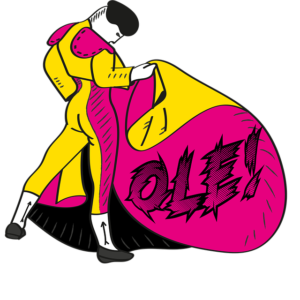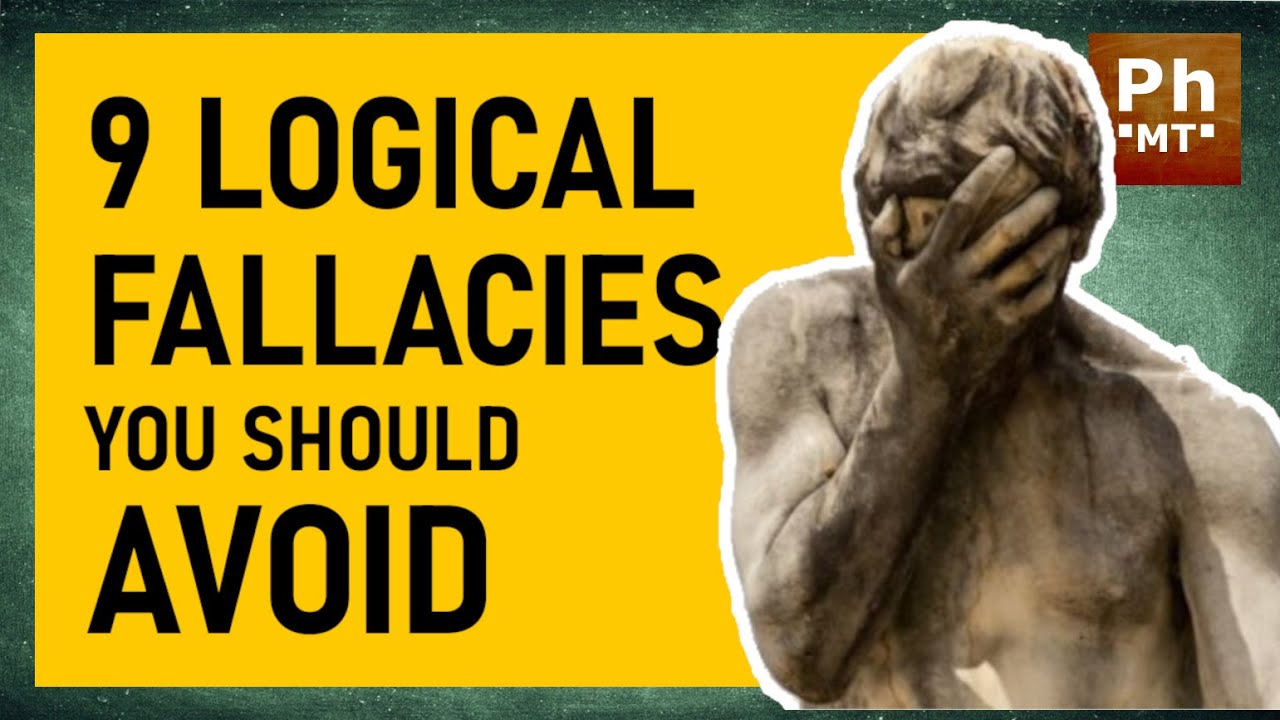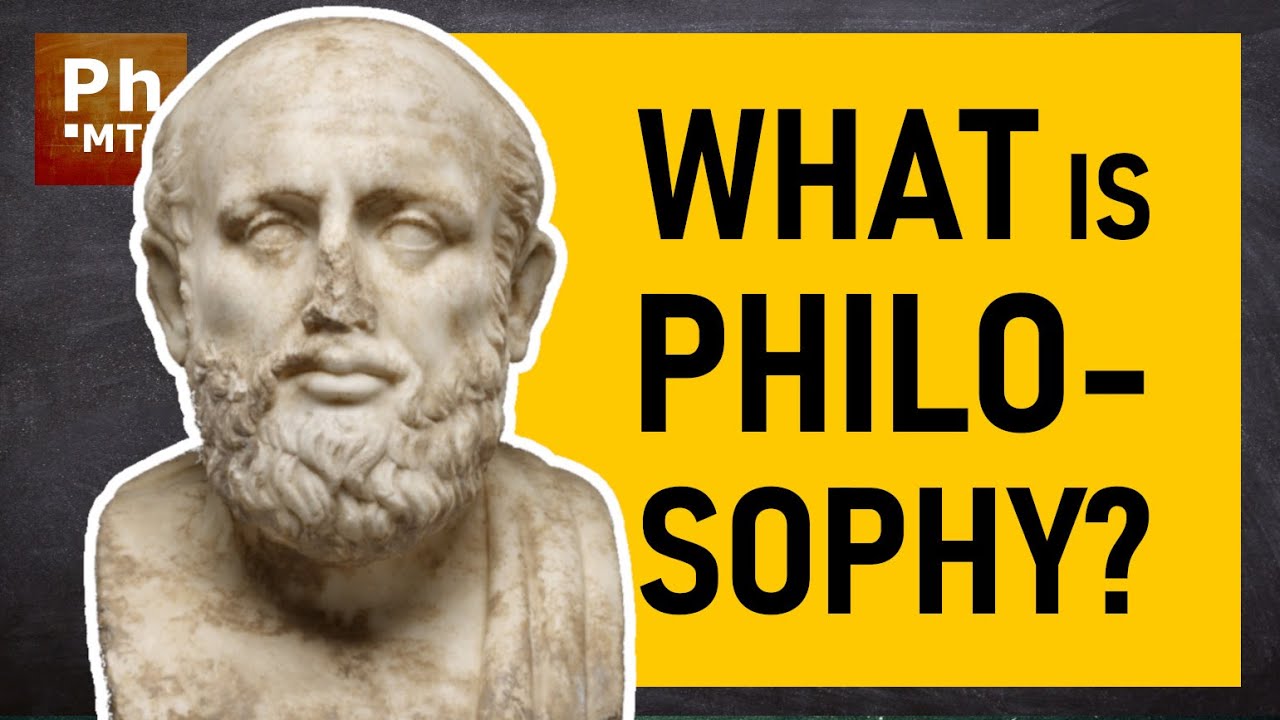A (more or less) full list of logical fallacies
Fallacies are flaws in reasoning that weaken our arguments. Here is a (more or less) complete guide. Share to support more content.
Would you rather watch this as a video? Here:
ACCIDENT FALLACY,
DESTROYING THE EXCEPTION,
DICTO SIMPLICITER,
SPOKEN SIMPLY,
SWEEPING GENERALISATION
Types of assumptive, deductive, and ambiguity fallacies. We try to apply a general rule to all situations, even when there are clear exceptions.
Example:
“Stealing is wrong. Always. Even when you steal a gun from someone intent on shooting you.”
RESORT TO ANGER
A type of attack, assumptive, and assertive fallacy. We resort to anger when our argument is not accepted, as if that would make it valid.
Example:
“I SAID THE EARTH IS FLAT! NOW SHUT UP!”
AD POPULUM,
APPEAL TO BELIEF,
APPEAL TO COMMON BELIEF,
APPEAL TO MAJORITY,
APPEAL TO POPULARITY,
BANDWAGON,
VALUE OF COMMUNITY
Types of assumptive, deductive, relevance, and appeal fallacies. We conclude that something must be true because many people believe it.
Example:
“50,000,000 Elvis fans can’t be wrong!”
APPEAL TO NOVELTY
A type of appeal and assumptive fallacy. We conclude that something is good or superior simply because it is novel or in fashion.
Example:
“Lip injections are all the rage right now! They’re better than natural!”
BEGGING THE QUESTION,
CHICKEN AND EGG ARGUMENT,
CIRCULAR DEFINITION,
CIRCULAR REASONING
Types of assumptive, deductive, and causal fallacies. We simply restate our premise as a conclusion as if it were valid evidence. Except it isn’t.
Example:
“God exists because the Bible says so. The Bible is true because it’s the word of God, and God exists.”
COMPLEX QUESTION,
DOUBLE BLIND,
FALSE QUESTION,
LOADED QUESTION
Types of assumptive and distraction fallacies. These imply a claim in such a way that it must be accepted before answering the question. It is a fallacy when the implied claim is not backed by evidence.
Example:
“When did you stop using drugs?”
FALLACY OF COMPOSITION,
FAULTY INDUCTION,
HASTY GENERALISATION,
HASTY INDUCTION,
LEAPING TO CONCLUSION,
STATISTICAL GENERALISATION
Types of assumptive, deductive, and statistical fallacies. We conclude that something is true of the whole from the fact that it is true of some part.
Example:
“This window is made of glass. Therefore, the whole house is made of glass.”
FALLACY OF DIVISION,
FAULTY DEDUCTION
Types of ambiguity, assumptive, analogy, linguistic, and statistical fallacies. We assume that something that is true of the whole must also be true of its parts.
Example:
“The US is the wealthiest country in the world. Therefore, everyone in the US is wealthy.”

CONVERSE ACCIDENT,
EXCEPTION FALLACY,
INDUCTIVE GENERALISATION,
INSUFFICIENT SAMPLE,
INSUFFICIENT STATISTICS,
LONELY FACT,
LEAPING TO CONCLUSION,
STEREOTYPE
Types of assumptive and inductive fallacies. We form conclusions about a group from characteristics of an individual.
Example:
“My nephews like playing with cars. All boys like playing with cars.”
BIFURCATION,
BLACK AND WHITE THINKING,
EITHER / OR,
EXCLUDED MIDDLE,
FALSE DICHOTOMY,
FALSE DILEMMA,
POLARISATION
Types of assumptive, distraction, and falsehood fallacies. We are presented with a limited range of choices from which to choose when there are other, unstated choices.
Example:
“Do you want to keep studying law or do you want to spend your life sweeping floors?”
“Actually, neither. I want to open my own bakery.”
ARGUING FROM SUCCESSION ALONE,
ASSUMED CAUSATION,
FALSE CAUSE,
FAULTY CAUSATION,
POST HOC,
QUESTIONABLE CAUSE
Types of assumptive and causal fallacies. We assume that one thing caused another simply because it happened earlier, or because they always seem to happen at the same time. However, correlation does not equal causation.
Example:
“In the evening, when I get sleepy, the sun comes down. Therefore, I must be causing the sun to come down.”
FALSE EFFECT,
NON CAUSA PRO CAUSA
Types of assumptive, distraction, causal, and falsehood fallacies. We falsely state that X causes Y. Y is something wrong or unpleasant. Therefore, X is wrong.
Example:
“Masturbation will make you blind and give you hairy palms. Don’t masturbate.”
ILLICIT MAJOR
A type of formal, assumptive, and syllogistic fallacy. It follows the fallacious form, All X are Y; no Z are X; therefore, no Z are Y.
Example:
“All men are human. No women are men. Therefore, no women are human.”
ILLICIT MINOR
Another type of formal, assumptive, and syllogistic fallacy. It follows the fallacious form, All X are Y; all X are Z; therefore, all Z are Y.
Example:
“All roses are flowers; all roses are plants; therefore, all plants are flowers.”
INSIGNIFICANT CAUSE,
INSUFFICIENT CAUSE
Types of assumptive, distraction, and causal fallacies. We make a big deal out of a relatively minor, contributing cause which is not the main cause. It’s a type of smokescreen.
Example:
“People smoking is what causes air pollution over Beijing.”
MISLEADING VIVIDNESS,
ANECDOTAL FALLACY
Types of assumptive and inductive fallacies. A very small number of dramatic events are portrayed as if they were much more common than they actually are, disregarding statistical evidence.
Example:
“Immigrants bring with them sickness and diseases! They’re also stealing our jobs, raping our women, and draining resources from the state!”
SLIPPERY SLOPE,
ABSURD EXTRAPOLATION,
BUTTERFLY EFFECT
Types of assumptive and causal fallacies. We conclude that if we allow something relatively small and harmless now, it will eventually snowball into something much bigger, much worse.
Example:
“If you don’t wear an umbrella, you will get wet, develop a cold, end up in hospital, and be dead within weeks.”
UNDISTRIBUTED MIDDLE
A type of formal, assumptive, and syllogistic fallacy. We argue that A are B. C are B. Therefore, C are A.
Example:
“Strawberries are red. Tomatoes are red. Therefore, tomatoes are strawberries.”

BIASED SAMPLE,
FALLACY OF EXCLUSION,
UNREPRESENTATIVE SAMPLE
Types of assumptive, inductive, and statistical fallacies. We take an invalid or biased sample to represent a whole population.
Example:
“The Spanish men I’ve seen on TV have dark hair. All Spanish men must have dark hair.”
ECOLOGICAL FALLACY,
ECOLOGICAL INFERENCE FALLACY,
POPULATION FALLACY
We form erroneous conclusions about an individual from the characteristics of a group.
Example:
“In a bag of M&M’s, a sixth are red. Therefore, one individual M&M’s will be one sixth red.”
WISHFUL THINKING,
APPEAL TO BELIEF,
APPEAL TO CONSEQUENCES OF A BELIEF
Types of assumptive, appeal, and falsehood fallacies. We wrongly assume that something is true just because we want or believe it to be true.
Example:
“If I believe it strong enough, it won’t rain tomorrow.”
APPEAL TO PROBABILITY,
APPEAL TO POSSIBILITY
We assume that something is certain to happen simply because it may be probable.
The general structure would be,
X is possible or probable.
Therefore, X is certain.
Example:
“It may snow in December. We’re going to have a white Christmas!”
AFFIRMING A DISJUNCT,
ALTERNATIVE DISJUNCT,
FALSE EXCLUSIONARY DISJUNCT
Types of formal fallacies. We falsely conclude that one disjunct must be false because the other disjunct is true. In fact, both could be true.
There general form would be,
A or B.
A.
Therefore, not B.
Example:
“To make it in the music industry, one must be very talented or beautiful. This week’s number one artist is very talented. Therefore, this artist is not beautiful.”
AFFIRMING THE CONSEQUENT,
CONVERSE FALLACY,
CONFUSION OF NECESSITY AND SUFFICIENCY
Also types of formal fallacies. We claim that the antecedent in a conditional statement is true because the consequent is true.
Example:
“If I’m drinking then I’m thirsty. I’m thirsty. Therefore I am drinking.”
DENYING THE ANTECENDENT,
INVERSE FALLACY,
INVERSE ERROR
Types of formal, syllogistic, and non-sequitur fallacies. We falsely infer the inverse from an original statement.
Example:
“If you are a father, then you are a man. Therefore, if you are not a father, then you are not a man.”
EXISTENTIAL FALLACY,
EXISTENTIAL INSTANTIATION
Also formal fallacies. We wrongly assume the existence of something based on universally accepted premises.
Example:
“Everyone knows that dragons breathe fire. Therefore, somewhere in the world there must be dragons that breathe fire.”
ACCENT FALLACY,
EMPHASIS FALLACY
Types of ambiguity and linguistic fallacies. We fail to emphasis to, or accentuate, words that change the meaning of a sentence. This happens especially in reported speech.
Example:
“He isn’t driving to Rome on Wednesday.”
By emphasizing “he,” we’re implying it’s someone else who’s driving to Rome on Wednesday.
By emphasizing “isn’t,” we’re implying that he has changed his plans to drive to Rome on Wednesday.
By emphasizing “driving,” we’re implying that he may be getting to Rome in some other way, for example by taking a train.
By emphasizing “to,” we’re implying that he’s driving from, Rome.
By emphasizing “Rome,” we’re implying he may be driving to some other place.
By emphasizing “Wednesday,” we’re implying he may actually be driving to Rome some other day.
AMPHIBOLY,
AMPHIBOLOGY
Types of ambiguity fallacies. Sentences are structured in a way that makes their meaning ambiguous.
Example:
“I know a man with a wooden leg named Smith.”
“What’s the name of his other leg?”
APPEAL TO INAPPROPRIATE AUTHORITY,
AD VERECUNDIAM
Types of assertive, distraction, relevance, and appeal fallacies. We fail to provide an appropriate source of evidence to back our claims.
Example:
“In the movie Braveheart we see William Wallace having an affair with the Queen of England. Therefore, it must have really happened!”
PROOF BY ASSERTION,
ALLEGED CERTAINTY
Types of assertive and falsehood fallacies. We try and make something true by the mere fact that we say it.
Example:
“You’re stupid! Therefore, you’re stupid!”
APPEAL TO COMMON PRACTICE
A type of deductive and appeal fallacy. We conclude that if others do something questionable, then we can do it, too.
Example:
“Everyone I know evades taxes. It’s OK if I do it, too.”
APPEAL TO EMOTION
A type of distraction, relevance, and appeal fallacy. We play on emotions in an attempt to win an argument.
Example:
“There must be an afterlife! The alternative is totally depressing!”
APPEAL TO FEAR,
CONSEQUENCES,
IN TERROREM,
SCARE TACTICS
Types of relevance, appeal, and threat fallacies. To win an argument we attempt to increase fear and prejudice towards an alternative point of view.
Example:
“The only moral way to live is the Church’s way to live. Otherwise, you will burn for eternity.”

Burned at the stake.
APPEAL TO FORCE,
APPEAL TO VIOLENCE,
AD BACULUM
Again, types of relevance, appeal, and threat fallacies. We intimidate another party and coerce them to agree through the use of physical or mental violence.
Example:
“The sun orbits the Earth. Accept it, or we’ll burn you at the stake.”
APPEAL TO FLATTERY
We flatter our audience in order to win an argument.
For example,
“Surely, someone as brilliant as you can see that this is a great idea.”
APPEAL TO IGNORANCE,
ARGUMENT FROM IGNORANCE,
AD IGNORANTIUM,
BURDEN OF PROOF
Types of assertive, relevance, and appeal fallacies. We assert something is true because it has not been proven to be false. Or else, something is false because it has not been proven to be true.
Examples:
“Unicorns exist because you can’t prove they don’t.”
or
“God doesn’t exist because you can’t prove He does.”
APPEAL TO PITY,
APPEAL TO SYMPATHY
Types of relevance and appeal fallacies. We try to win an argument by exploiting the other person’s feelings of pity or guilt.
Example:
“You really should choose me for this job. My cat is sick and I need the money.”
APPEAL TO RIDICULE,
APPEAL TO MOCKERY,
HORSE LAUGH FALLACY,
AD RIDICULUM
Types of attack, distraction, appeal, and threat fallacies. We attempt to win an argument by mocking and making fun of the other person’s claim, instead of providing relevant evidence.
Example:
“Of course we should allow same-sex marriage! We should also allow marriage with horses, goats, and motorbikes!”
APPEAL TO SPITE,
ARGUMENTUM AD ODIUM
To try to win an argument, someone exploits feelings of bitterness or hatred towards an opponent.
Example:
“How could you allow Mark to be promoted to warehouse supervisor? Don’t you know he supports the other team?”
APPEAL TO TRADITION,
AD ANTIQUITATEM
Something is superior exclusively because it has always been done this way.
Example:
“Schools have always started early in the morning. Therefore, they should remain that way.”
APPEAL TO TRUST
Types of appeal and falsehood fallacies. We assume a claim to be true purely on the fact that the source is usually trustworthy. It is problematic because each claim or argument should be evaluated on its own merits.
Example:
“Trust me, I’m a doctor.”
AGAINST THE PERSON,
AD HOMINEM
A range of attack, distraction, and relevance fallacies. We attack the person, character, or circumstances of the opponent, rather than their argument.
Example:
“You can’t argue a case for vegetarianism if you enjoy eating meat.”
CANCELLING HYPOTHESIS,
CONSPIRACY THEORY
Types of attack, distraction, and relevance fallacies. We attempt to justify far-fetched theories that very often go against available evidence.
Example:
“Harmful vaccines are how pharmaceutical companies get rich off you.”
EQUIVOCATION,
SEMANTIC EQUIVOCATION,
FALLACY OF FOUR TERMS
Types of ambiguity and linguistic fallacies. We call different things by the same name in a misleading way, shifting between different meanings of the same word or phrase in the same argument.
Example:
“A star lasts billions of years. Keith Richards is a star.”
FALSE ANALOGY,
FALSE METAPHOR,
WEAK ANALOGY
Types of linguistic, falsehood, inductive, and analogy fallacies. We try to draw a conclusion by applying facts from one situation to another. However, the situations are substantially different and between which we cannot draw the same conclusion.
Example:
“Tom must be a lazy bastard given how lazy his brother Jim is.”
ARGUMENT FROM MIDDLE GROUND,
ARGUMENT FROM MODERATION,
FALSE COMPROMISE,
FALSE EQUIVALENCE,
GOLDEN MEAN FALLACY,
SPLITTING THE DIFFERENCE
We wrongly assume that extreme views are wrong and the best and fairest choice lies in the moderate middle.
Example:
“May says the sky is red. June says the sky is yellow. Therefore, the sky must be orange.”
GAMBLER’S FALLACY,
MONTE CARLO FALLACY,
MATURITY OF CHANCES FALLACY, SUNK COST FALLACY
Types of statistical fallacies. We wrongly think that we can predict what’s going to happen based on statistically independent instances.
Example:
“I really want to have a daughter. Having already had five sons, my chances of having a daughter are now higher.”

AD NAUSEAM,
ARGUMENT BY REPETITION,
ARGUMENT FROM NAGGING
Other examples of statistical fallacies. We repeat something over and over until we down out any opposition and it’s believed to be true. A form of brainwashing, the following explanation is said to have been given by Nazi propaganda minister Joseph Goebbels: Repeat a lie often enough and it becomes the truth.
Example:
“The Jews are to blame for the war!”
Enjoying this? Bookmark PhilosophyMT. Share to support new content!
SECUNDUM QUID,
IGNORING QUALIFICATIONS,
MISUSE OF A PRINCIPLE,
IN A CERTAIN RESPECT AND SIMPLY
A type of non-sequitur. Conveniently, we choose which cases to use to support our claims and conveniently omit others.
Example:
“Great poets die young… Wilfred Owen, Sylvia Plath, Shelley, Byron, Keats, Auden…”
Equally, you have great poets who lived to a ripe old age… Wordsworth, Tennyson, Robert Frost, Mary Oliver…
MANY QUESTIONS FALLACY
A type of attack or distraction fallacy. We use the rhetorical trick of asking a barrage of questions, sometimes loaded and unrelated between them, with the intention of overloading and confusing the interlocutor.
Example:
“What exactly do you plan on doing and how and where, and who will you involve and when and what is the extent of each outcome?”
IGNORANCE OF REFUTATION,
IGNORATIO ELENCHI,
IRRELEVANT CONCLUSION,
MISSING THE POINT
Types of non-sequitur, assertive, relevance, and appeal fallacies. Our conclusion fails to address the point of the premise.
Example:
“Hippos are so cute! They can’t possibly be dangerous!”
Well, apparently, they kill about 500 people per year in Africa.
INCONSISTENCY
We make multiple statements that contradict one another.
Example:
“I’m not a racist, but these immigrants are a plague!”
PERSONAL INCONSISTENCY,
TU QUOQUE,
YOU TOO FALLACY
Types of attack and ad hominem fallacies. We dismiss someone’s claim or argument not on the merits of the argument itself, but based on the person’s past actions, which may contradict their claim or argument.
Example:
“Who are you to speak against war when you signed up to fight in Afghanistan?!”
DISCREDITING,
POISONING THE WELL
Types of ad hominem, attack, and distraction fallacies. They are aimed at damaging a person’s reputation to undermine their argument or topic.
Example:
“You have no right to talk about marriage or romantic relationships, you celibate priest!”
RED HERRING
A type of distraction fallacy. It happens when someone changes the subject, causing the conversation to change direction away from a relevant or important question.
Example:
Journalist: “The surge of white supremacy in your electorate is worrying.”
Politician: “I think the people have a right to voice their concerns, whatever those may be. I mean, the people had spoken against the state of the roads. We are now pumping more money than any previous administration to upgrade road surfaces. Have you seen those roads? They’re the best in the country now!”
NEGATION INTRODUCTION,
REDUCTIO AD ABSURDUM,
REDUCTION TO ABSURDITY
A type of appeal to extremes. It is an attempt to establish a claim by showing that the opposite would be too absurd.
Example:
“What does it mean we’re descended from apes? Do get to call chimpanzees mummy and daddy?”
CONCRETISM,
HYPOSTATISATION,
MISPLACED CONCRETENESS,
REIFICATION
Types of ambiguity fallacies. Treat an abstract belief, opinion, or idea as if it were a real concrete object or event.
Example:
“In magnets, south poles and north poles always want to stick together, but same poles hate each other.”
Of course, while this may describe how magnets act, magnets have no mind or emotions.
SOCIAL CONFORMITY
A type of attack or threat fallacy. We make someone agree through peer pressure and the threat of social rejection, rather than rational argument.
Example:
“You have to come to the party! Everyone is going! If you don’t, you’ll be outcast and no one will want to be your friend.”

STRAW MAN
A type of attack or distraction fallacy. Rather than attack the argument, we attack a parody of it.
Example:
“I can’t believe some people are against the death penalty. To them, the lives of murderers are more important than the lives of their victims.”
STYLE OVER SUBSTANCE
A type of distraction and relevance fallacy, as well as appeal to emotion, we give more importance to how nicely something is produced than substance.
Example:
“Thank you for your presentation. Unfortunately, I’m finding it impossible to see beyond your use of Comic Sans.”
And, finally, …
THE FALLACY FALLACY,
BAD REASONS FALLACY,
ARGUMENT TO LOGIC
We wrongly assume that, if an argument is fallacious, then the conclusion must be false.
Example:
“Just because Jim is lazy, we can’t conclude that his brother Tom is also lazy. Therefore, Tom is not lazy.”
Want to learn more about fallacies? Watch our other videos!
Have we missed any? Let us know in the comments.
Support more content by sharing, liking, and subscribing!




